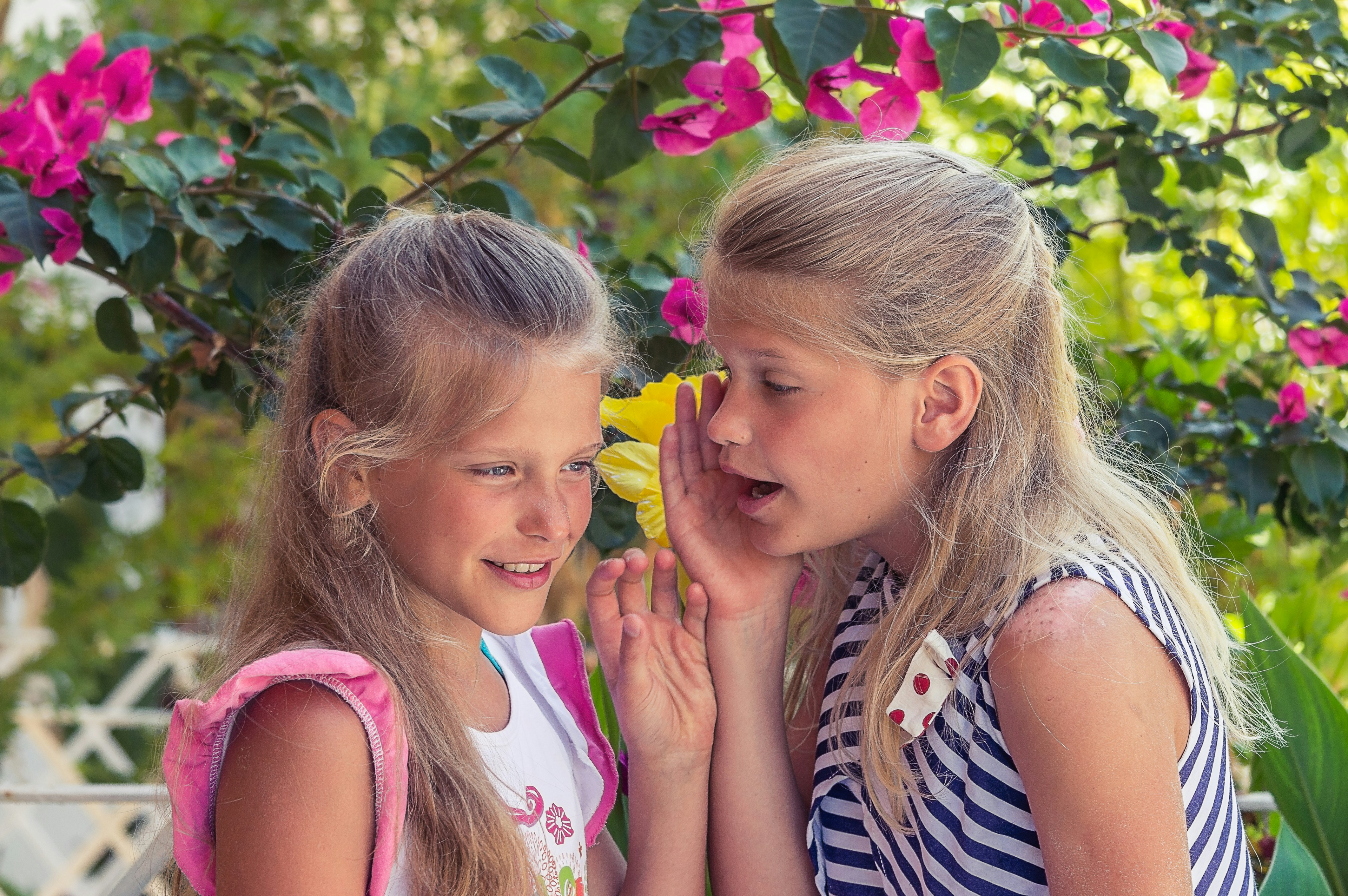Olivia Rodrigo and Sabrina Carpenter shared a heartwarming hug at the 2025 Grammys, and the world quickly crowned them as best friends and future music collaborators. Sydney Sweeney recently called off her engagement, and naturally, people have tied her undeniable chemistry with Glen Powell into the situation. But it doesn’t stop there; Similar dynamics are unfolding in the content creator world as well.
When Nick and Cassie got together (#Nassie), and the internet is in awe. The Kalogeras sisters have rapidly risen to fame, and the internet can’t get enough of their lifestyle.

Image Credit: Georgia de Lotz from Unsplash
However, things can escalate quickly. In industries like K-pop, for instance, artists are often pressured to hide their romantic relationships to maintain a more 'attractive' public image. This was painfully evident when K-pop boy group RIIZE's member Seunghan received death threats and severe hate after a few photos of him with his suspected ex-girlfriend surfaced online, leading to his eventual removal from the group.
Is this normal? Is it normal to constantly comment on celebrities’ bodies, relationships, family affairs, diets, and every small detail of their lives? How did we end up here?
Let us slide into your dms 🥰
Get notified of top trending articles like this one every week! (we won't spam you)The Psychology Behind Our Obsession
Dr. Paul Harrison, a culture and consumer behavior specialist from Deakin University, explains that our fascination with celebrities stems from a deep-seated desire to look up to authority figures. This is known as social learning, where we adopt behaviors by observing a role model and later imitate those behaviors in their absence. This is especially common among children and teenagers, as demonstrated in Bandura’s famous Bobo Doll experiment in social psychology.
Celebrities are often expected to embody socially desirable traits: physical appearance, a healthy lifestyle, fame, financial success, and social skills—all qualities that people aspire to. Their idealized versions, captured through the camera lens, act as positive motivators and role models. For example, celebrity couple Dylan and Barbara Sprouse are admired not just for their individual good looks, but also for their shared chemistry and sense of humor- traits that fans long to have in their own relationships.

Take the Quiz: What K-Drama Character Are You The Most Like?
Take this quiz to find out which K-Drama Character you're like the most!
Gossip as a Social Glue
Celebrity gossip can also serve as a frame of reference when things go wrong. Humans are natural storytellers, and when a celebrity’s narrative resonates with our own experiences, it provides a sense of comfort. For instance, if we’re struggling with unrequited love, knowing that Demi Lovato once had feelings for Nick Jonas or that even Drake got ghosted by Rihanna helps us feel less alone—something that, as social beings, we would never want to experience.
On the flip side, these stories can also offer hope. Vera Wang’s success later in life serves as inspiration for women who may fear starting a business in their 40s or 50s.
Whether we admit it or not, gossip helps us bond over shared topics. As social beings, we thrive on connection. As Dr. Frank McAndrew, a social psychologist, puts it, “Gossip gives us a shortcut to intimacy.” After all, at a certain point, it’s no longer about the celebrity- it’s about finding common ground and having our opinions validated by like-minded individuals.

Image Credit: Vitolda Klein from Unsplash
When Aspiration become Obsession
However, our natural inclination toward self-evaluation and social comparison can sometimes lead us astray, turning healthy references into toxic comparisons. With modern beauty standards pushed by the media, from the hourglass figure to glass skin, people begin to chase unattainable ideals. We want to be as desirable as the celebrities we admire, but is what we’re seeing even real, or is it just a distorted illusion?
With the advent of editing apps, plastic surgery, and other cosmetic procedures available to celebrities, they create impossible standards- ones that we, as consumers, fall for. By doing so, we perpetuate the capitalist cycle that benefits both brands and their celebrity ambassadors, who continue to profit from our insecurities.
Its Their Job- Not Ours
But here's the crucial distinction we often miss: for those on our screens, how they look is part of their job. Models must maintain specific body measurements to fit into runway outfits. Actors rely on their appearance as an asset to stand out in the industry. But we, in our everyday lives, don’t have the same professional requirement to have a perfect body or flawless skin.
Take Oli London, for example. The British internet personality went viral for undergoing extreme plastic surgery in an attempt to look like Jimin from BTS. Then there’s Kylie Jenner, who capitalized on the attention surrounding her lips in 2015.
Initially denying her lip fillers, she eventually admitted to using them, while selling 15,000 lip kits in less than a minute. That’s 15,000 young women misled by the media, buying into a beauty standard promoted by a role model who profited from their insecurities.
Yet, celebrities aren’t always to blame for the narratives that surround them.
The Role of Fans and Parasocial Bonds
Fan comments and opinions are always present: whether to mock or appreciate every action, photo, or clip of a celebrity. But why do we get so emotionally invested in even the most mundane posts, like a childhood picture or a casual Sunday morning coffee snap?
Our need for social belonging is, once again, fulfilled when we comment on celebrities’ posts and feel part of a larger online community. According to Social Identity Theory, regularly engaging with celebrity content helps reinforce our sense of belonging. Sharing our opinions on seemingly irrelevant posts and receiving likes or responses validates our place within that digital social group.
Moreover, the aura of exclusivity surrounding celebrities makes us crave as much information about them as possible. This desire can quickly spiral into obsession, especially when it feels like access to their personal lives is just a post away.
This behavior ties into the broader concept of parasocial relationships- emotionally intense, one-sided connections where fans feel as though they personally know the celebrity. Factors such as shared backgrounds or similar physical appearance can deepen this perceived bond, prompting fans to dig even further into the celebrity’s life.

Image Credit: Jasmine from Unsplash
It's Also About Us
In a world driven by constant comparison and curated perfection, celebrity news offers us more than just entertainment- it gives us something to relate to, aspire toward, or even critique. We get passionate because it feels personal. When a celebrity looks like us, loves like us, or struggles like us, it validates our own experiences. It’s not just about them- it’s about what they represent to us.
But we often forget that what we see is carefully constructed: behind every photo is lighting, editing, media training, or even cosmetic enhancement. If even they need help to appear that way, why do we hold ourselves to those impossible standards?
Maybe it’s time to shift the passion we pour into others back into ourselves, not with filters or comparisons, but with self-acceptance.










